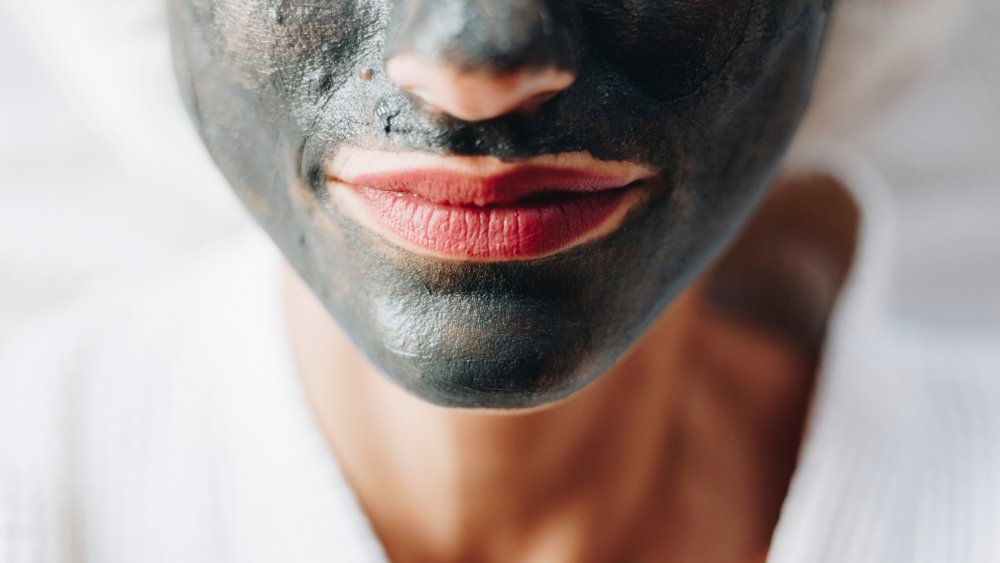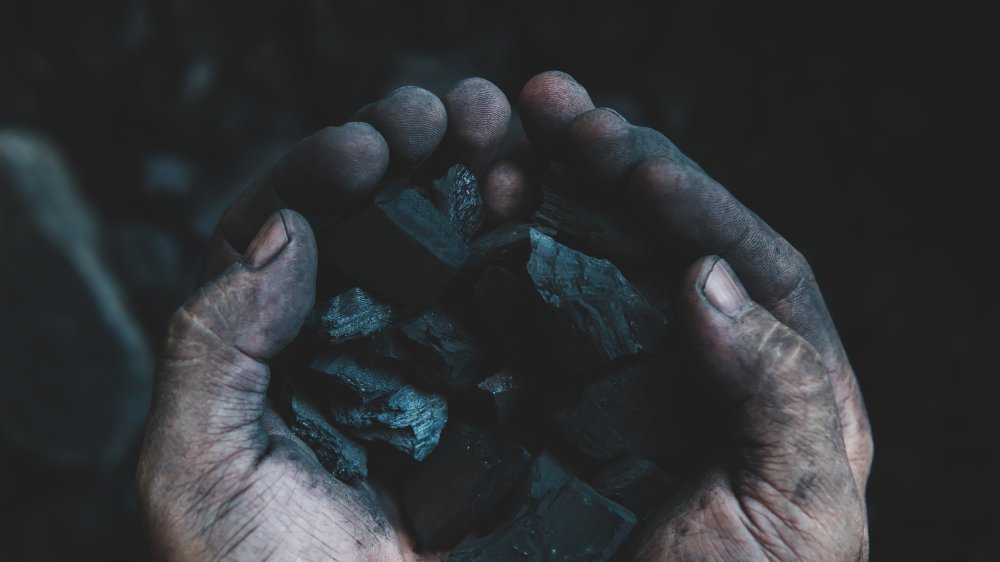Why You Should Think Twice About Putting Charcoal Products On Your Face
Recently, healthcare trends have made their way into skincare products and vice versa. If you've seen activated charcoal masks, serums, and other products, it comes as a result of the detox craze that many have found themselves subscribing to. However, it's important to see through the hype and look deeper into the ingredients you're putting on your face.
Charcoal's main benefit comes from its ability to absorb and extract, making it a powerful detoxifier. If you have oily skin, using products with this ingredient may be helpful in removing excess oil, bacteria, and sebum, Yora notes. Plus, if you live in an area with less-than-stellar air quality, charcoal products may provide a valuable layer of protection. But, for dry skin, activated charcoal can wreak havoc on already-parched cells.
According to Yora, dry skin lacks moisture in the form of sebum and other oils, so using a product that zaps what's left can leave a rough exterior. Steering clear of charcoal masks can prove to be beneficial in the long run as well. When you yank off your mask, it carries with it valuable lipids and oils that protect your face — these items are also what keep it hydrated over time, Yora explains. When it comes to masking, it may be best to leave the charcoal varieties on the shelf.
Using charcoal products could be harsh on your facial skin
Activated charcoal often treats dire ailments including drug overdoses, poisonings, and other toxicity issues, Global News notes. Since it can absorb dangerous toxins like these, activated charcoal is said to do the same thing on your face — but this effect may be too much for delicate facial skin.
On top of there being little research on the benefits of using products like these, some have called their safety into question. Dr. Lisa Kellet explains to the outlet, "People have to be careful because some of the formations can be irritating. You wouldn't use [these products] if you have a sensitive skin type and you'd have to be careful, but they're all different."
With highly abrasive qualities, activated charcoal can cause damage to your skin. Furthermore, using the term "charcoal" may just be a marketing ploy, Kellet contends. "Just because they have charcoal in them, it doesn't mean it's one of the active ingredients in it and you have to look at the rest of the product as well in terms of the vehicle, like in a cream or mask." Sensitive and dry skin types should likely use charcoal skincare products sparingly, if at all, taking into account their potentially damaging qualities. Just remember to do your research when looking to add a new item to your routine.

